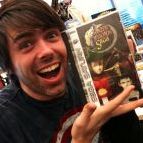E3 2010: 5 reasons Skyward Sword will rock
Not convinced by Nintendo’s E3 presentation? Let’s try and fix that
A year ago Shigeru Miyamoto teased a new Zelda game for Wii by revealing one piece of art. And for a year, that’s all we’ve had to go on. Literally one year later he took center stage at E3 2010 and premiered Skyward Sword, a MotionPlus-capable sequel that’s set to release in 2011. Miyamoto’s demo didn’t fare too well due to some form of “technical difficulties,” which unfairly made the alleged one-to-one sword control seem unresponsive.
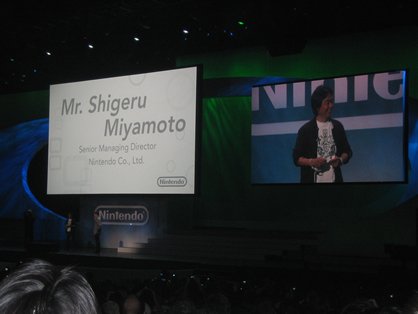
Above: Moments from motion fiasco
Well, that’s not the case at all, and I feel there are some other points that make this more than “just another Zelda.”
The motion controls work
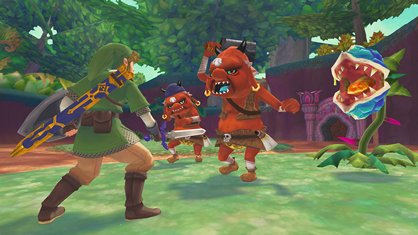
As mentioned, the MotionPlus-enabled Skyward Sword does indeed read your movements. I could hold my hand out and turn the remote side to side or straight out and watch Link do the very same onscreen. Swing sideways and he’ll swing sideways. Swing vertical, you get vertical. Push both the remote and Nunchuk down and you get a fierce downward slice. Bump both to the left or right for the iconic spin attack. And lastly, yank the Nunchuk to raise and shove your shield, which blocks and also bounces projectiles back at the baddies. Then there’s the whip, which strikes out from Link at more or less the same angle you swing the Wii Remote.
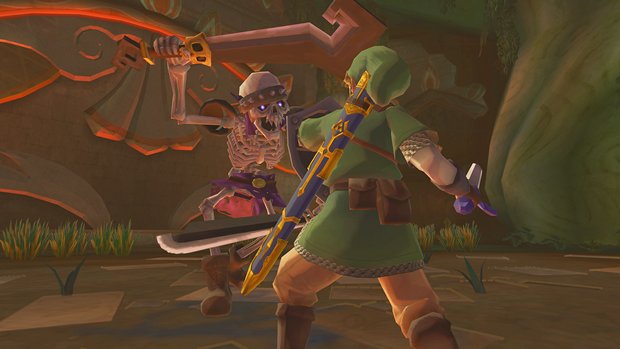
Above: The Stalfos’ stance dictates how you should attack
This allows for more interesting and varied combat that’s reminiscent of Red Steel 2. If you skipped that one (and you probably did), that means changing up your attack patterns and reacting to enemy stances instead of just swinging away like you’re forever trapped in the final moments of Shyamalan’s Signs. That said, it’s not as demanding as Red Steel 2 (at least not the demo area), so you won’t have to waggle wildly for extended periods of time – there’s still plenty of puzzle solving and exploration like previous Zeldas.
The menus are streamlined
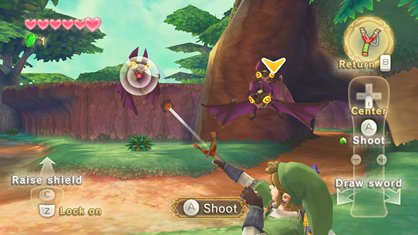
As you might expect, Nintendo didn’t provide a bunch of shots of the menus. But one of the biggest legitimate points are those menus, or more specifically the way they now function. You used to have to pause, select or equip an item, use it, then go through it all over again if you wanted to change weapons or drink potions. Now you can bring up two different radial menus that let you simply point at the thing you want and immediately equip or use it. Twilight Princess had a similar feature, but it’s even smoother this time around – especially the potion-drinking, which used to literally freeze the world while you ingested it. Now Link keeps moving and just downs the thing.
Sign up to the GamesRadar+ Newsletter
Weekly digests, tales from the communities you love, and more
The structure will be different
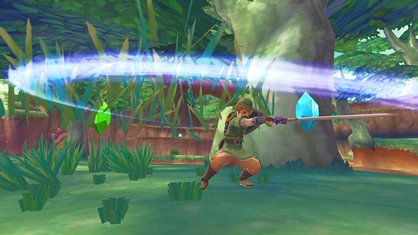
Skyward Sword is still a year away so I can’t expect this demo version to be fully representative of the finished product, but in this case the area-to-area structure was a bit different. It started in a narrow field that basically funneled you forward. Along the way you’d swing on vines, bowl bombs into tiny areas to open up small tunnels and fight man-eating plants, eventually coming to the large scorpion boss that’s been seen around so much this week.
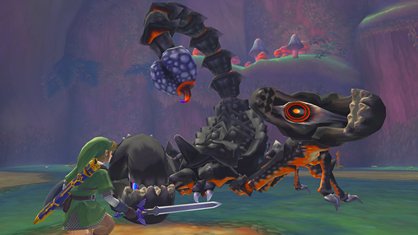
After defeating it (by making note of its attack stances and patterns, remember), Link passes through to a cliffside that overlooks a vast expanse of gorgeous outdoors, suggesting this path is neither lengthy dungeon nor open area. Both Miyamoto and series director Eiji Aonuma said this was intentional, and to expect a bit of deviation from the usual formula. Hey, we love just about everything Zelda, but it’s always cool to see Nintendo shaking things up with both the plot and the new items, like the motion-guided beetle that can take off and provide an aerial view.
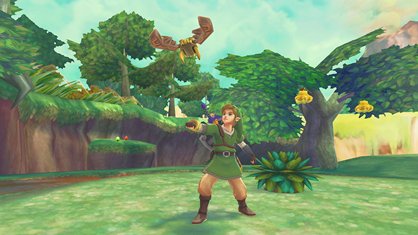
This beetle also can grab bombs and drop them on enemies or trigger other events in the world. Obviously, this will play a major role in the puzzles, and thus influence how the entire world will be built. So yes, it should be a very, very fresh experience.
Next page: Two more reasons Skyward Sword demands a closer look
A fomer Executive Editor at GamesRadar, Brett also contributed content to many other Future gaming publications including Nintendo Power, PC Gamer and Official Xbox Magazine. Brett has worked at Capcom in several senior roles, is an experienced podcaster, and now works as a Senior Manager of Content Communications at PlayStation SIE.
